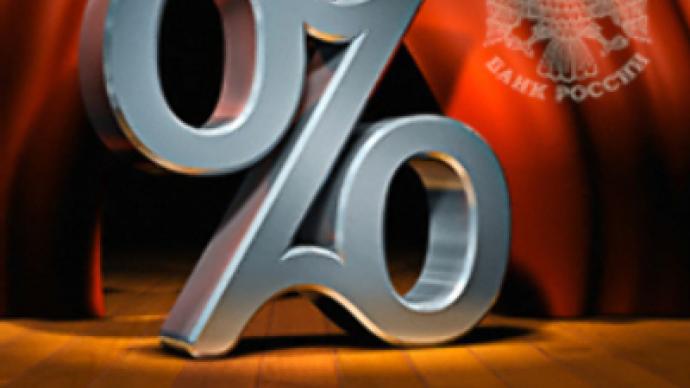Central Bank of Russia lifts refinancing rate

Russia's Central Bank has increased its refinance rate by 1 percentage point to 12 percent. The aim is to lower capital outflow and restrict inflation.
This is the fifth time this year the Central Bank increases the key rate. Rates on overnight and repo operations have also been increased as of the 12th of November. Since February the Central Bank has been increasing the refinance rate by a quarter percentage point. Between 1998 and 2008 the rate was only decreasing.
This comes as other central banks are cutting rates to boost the economy. Chris Weafer at Uralsib says the move indicates the amount of pressure the Bank of Russia is under to keep its currency from depreciating.
“It’s a reflection of how much pressure the Rouble is under, and also the fact that the government has said that it wants to prevent any devaluation of the currency. It wants to hold the currency relatively stable, but we thought, we’ve seen today, that the Rouble is coming under a lot of pressure. Basically traders and investors are looking at the falling oil price. They see that as a direct threat, not just to the Russian economy but the currency as well. The Government, on the other hand, sees keeping a stable currency as a key part of trying to maintain confidence in the country and in the economy. And there is a basic conflict here.”
At the same time as the refinancing rate went up, the Central Bank widened the rouble's trading band by 30 kopeks in each direction to increase the flexibility of the exchange rate.
Ron Smith, head of research at Alfa Bank, says the uncertainty about the Government's stance on devaluation of the Rouble is having a damaging effect on the market
“If it would have happened in the next week or two I think it would have been negative for a few days and then I think it would turn back positive, because right now – theres this old saying on the market ‘buy on the rumour and sell on the fact’ or ‘sell on the rumour and buy on the fact’ – I think the market will be weak until a resolution on the Rouble is reached . Either that the government can prove somehow that it can defend it indefinitely, or the situation changes on the oil market to allow more money to come into the country, to support the Rouble, or some sort of material devaluation occurs – either, or.”
Rouble tipped for slide of up to 30%
G20 meeting looks for overhaul of global financial architecture
Medvedev address highlights business support during crisis and focus on Rouble












